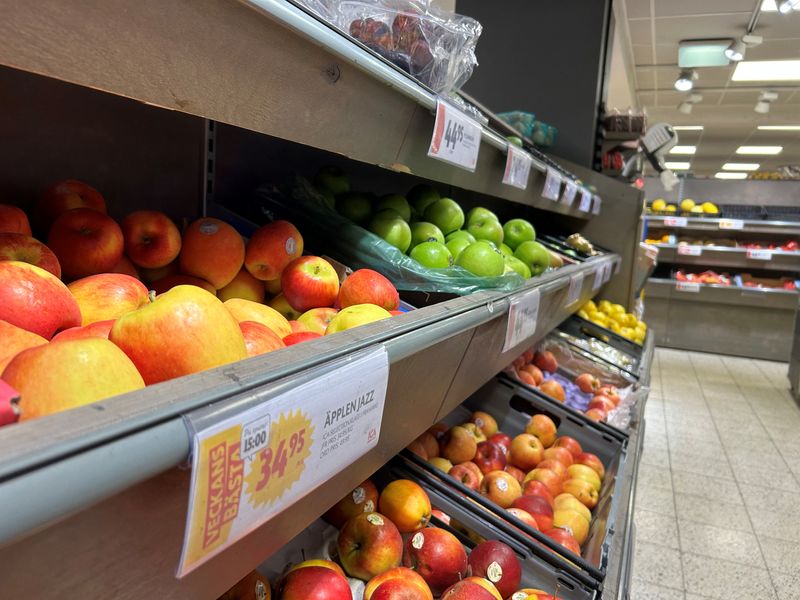By Simon Johnson
STOCKHOLM (Reuters) - The pace of Swedish inflation was higher than expected in May, data showed on Friday, but analysts said they saw inflation tracking down in the months ahead and that the central bank would continue to ease policy after a cut last month.
Inflation, which peaked at over 10% at the end of 2022, has been slowing significantly in recent months and analysts said that the May data had not changed the overall picture.
Consumer prices measured with a fixed interest rate (CPIF)rose 0.2% from April and 2.3% from the same month last year, the statistics office said.
Excluding volatile energy prices, a measure the Riksbank is currently paying extra attention to, inflation was 3.0% compared to the same month a year ago.
Analysts had forecast May headline inflation in Sweden of 2.1% and inflation excluding energy of 2.7%.
Analysts blamed some of the overshoot on three concerts by pop icon Taylor Swift in Stockholm and the final of Eurovision in Malmo in May.
"We remain confident that CPIF inflation will undershoot the Riksbank's 2% target in the second half of the year, prompting policymakers to cut the policy rate from 3.75% currently to 3.00% by the year-end," Adrian Prettejohn, European Economist at Capital Economics said.
Food, air travel and package holidays pushed up inflation, according to the statistic office's figures.
The Riksbank cut its key rate in May for the first time in eight years, arguing that the fight against inflation was almost done. It expects to make two more cuts this year, probably in the second half.
However, the ECB, which cut its key rate last week, and the U.S. Federal Reserve have struck a cautious note about their future plans to lower borrowing costs and this could still affect the Riksbank.

The Riksbank's most recent forecast, in March, was for headline inflation of 2.6% and inflation excluding energy of 2.9%. In April, those inflation readings were 2.3% and 2.9%, respectively.
The Riksbank announces its next policy decision on June 27.